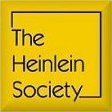|
|
|
- Men Like Gods
- Novel by H.G. Wells published by Macmillan in 1923. [Library of Congress call number PZ3.W465Men]
- A History of the American People
- Five-volume opus by Woodrow Wilson (history professor and President of the United States, 1913–1920), published by Harper & Brothers in 1902 (Library of Congress call number E178.W76). An expanded version, with additional sources, was published in a limited edition (400 copies) in 1918 [Library of Congress call number E178.W782].
- Betsy [Bobbin]: A little girl from Oklahoma who ends up in Oz when she is washed overboard in a storm at sea. (Tik-tok of Oz)
- Cap'n Bill: An ex-sailor who has been Trot's companion from birth as he was her mother's star boarder. (The Scarecrow of Oz)
- Eureka: Dorothy's white kitten, who becomes the Pink Kitten when Dorothy becomes a permanent resident of Oz. (Dorothy and the Wizard in Oz)
- Glinda the Good: The Good Witch of the South, who aids Dorothy in her quest to return home from Oz in the first story, and appears in later stories. (The Wizard of Oz)
- Hungry Tiger: A tiger whose conscience will not let him eat other animals. (Ozma of Oz)
- King of the Flying Monkeys: The chief of the Flying Monkeys (or Winged Monkeys), who leads his troop into action when called by the wearer of the Magic Cap. (The Wizard of Oz)
- Jack Pumpkinhead: A very agreeable but rather simple-minded person made by Tip, with a wooden body and a head carved from a pumpkin. was brought to life by Mombi when she sprinkled the Powder of Life on him. (The Marvelous Land of Oz)
- The Sawhorse: A wooden sawhorse brought to life by Tip by applying the Powder of Life. He became one of the regulars in the royal retinue of the Land of Oz. (The Marvelous Land of Oz)
- Scarecrow: A man made of straw who travels with Dorothy to see the Wizard of Oz to ask for a brain. He later becomes the Emperor of the Winkies. (The Wizard of Oz)
- Tik-Tok: A copper mechanical man who has a wind-up mechanism for thinking, speaking, walking, and other movements. Dorothy found him in the rock chamber where he had been hidden. He became an honored member of Ozma's retinue. (Ozma of Oz)
- The Tin Woodman: A wood chopper made of tin. The Wicked Witch of the East caused him to have accidents with his ax, cutting off parts of his body, which he replaced with tin parts. He traveled with Dorothy to the Wizard of Oz to ask for a heart. (The Wizard of Oz)
- Toto: Dorothy's faithful dog who travels with her in the many adventures in the Land of Oz. (The Wizard of Oz)
- Trot: A little girl whose real name is Mayre Griffiths. She and Cap'n Bill were swept by a whirlpool from the California coast to the Land of Oz. (The Scarecrow of Oz)
- Professor H. M. Wogglebug: A Highly Magnified Wogglebug who has been Thoroughly Educated thanks to Professor Nowitall. (The Marvelous Land of Oz)
- The Woozy: A creature about the size of a goat that appears to be made from building-block shaped parts covered with a smooth, tough dark blue skin with only three hairs on the very tip of its tail. (The Patchwork Girl of Oz)


